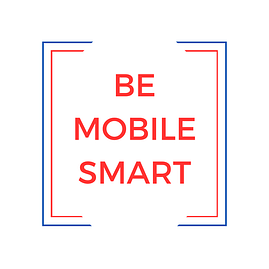
Digital Passport on Phone or just Covid Record? the NHS
Dear Ms. Smartphone: I just helped my grandmother get ready for a plane trip to the U.K. I am frankly worried when she has to return home next month. Most of the documents she needed to board the airplane and clear immigration got stored on her phone. We convinced her to carry a new smartphone instead of an old flip phone. But it took a lot of leg work and she said that a digital passport on a smartphone is just for nerds! I am not sure that she will be able to complete the document trail to get home! Chris, Mill Valley
Dear Chris: I fully understand your question as my husband and I recently took a trip to Canada and experienced similar issues. We could print the boarding passes anywhere, but most of the other documentation had to reside on our smartphones. The traveler information/customs forms were initiated through emails and accessed by barcodes. I think readers may be interested in the details, so I am going to get into the weeds of trip taking.
To travel internationally, say to the UK or Canada, you must show proof of a negative Covid test, often a PCR. For Canada, this test must be scheduled no sooner than 72 hours in advance of travel, so it involves an extensive search of available and fast testing sites. You probably had to help your Grandmother find a similar testing site. Scheduling both testing and vaccination sites online became one of the first digital divides of Covid.
Once you secure a testing site, and prayers that it goes well, you need an email address or text for receiving the outcome. That might have been an electronic hurdle for your grandmother, but I hope not.
Digital Declarations:
Now many countries, including the UK and Canda, require a digital declaration or a passenger location form to enter. Canada asks that the named traveler set up an online account with a password, and then populate it prior to travel with the Covid test results, an image of the passport, and flight information. This means that your grandmother must be conversant not only with digital email, but also with taking and forwarding jpegs, and remembering those pesky passwords!
These forms get reviewed by the authorities before you enter the country, but to clear immigration at the airport the details will need to be retrieved by a barcode, or completely re-entered into a machine. That’s where it could get tricky for Grandma if she tries to retrieve them on her phone. Hopefully there will be staff standing by to help her. By the way, if you remind her to save these as images then she will not need to face the added complexity of accessing WiFi at the airport. I find that lots of people don’t understand the differences when they travel of keeping the phone on local cellular service, using roaming, or jumping on local WiFi. The WiFi can unwittingly open up security vulnerabilities.
Leaning on Others:
During my recent trip, I had a chat with the U.S. customs/immigration official who cleared my return. He agreed that smartphones were becoming as necessary as passports for international travelers. He anticipated that people who were less familiar with the technology like your Grandma would lean on a family member or aide to help them. In a similar vein, my best friends travels with her spouse who is confined to a wheelchair. Because the disability network is incomplete and the travel accommodations for a wheelchair user are spotty she continually jumps in and does the heavy lifting (literally). More and more younger people, like you, will need to do the digital lifting for those who are not so tech savvy.
Using phones for travel documentation has been growing for some time beginning with the online boarding pass. However, Covid greatly accelerated the trend because of the need for additional documentation. Several columns back @dearsmartphone had a discussion of the pros and cons of real-time online Covid passes. In this U.K. article there is a thoughtful discussion of whether the National Health Service Covid passport will induce digital creep and further surveillance.
And, on that topic, if your Grandma is using her new smartphone in the UK this month, she probably has the GPS/location settings turned on. Through that local authorities can follow her path and know if she comes in contact with any Covid-infected people. She will also have to figure out how to get a Covid test on short notice in the UK before she hops on her flight back home. Hopefully, by then, she will become a ‘digital passport smartphone’ pro user or find a willing accomplice.


Leave a Reply
You must be logged in to post a comment.